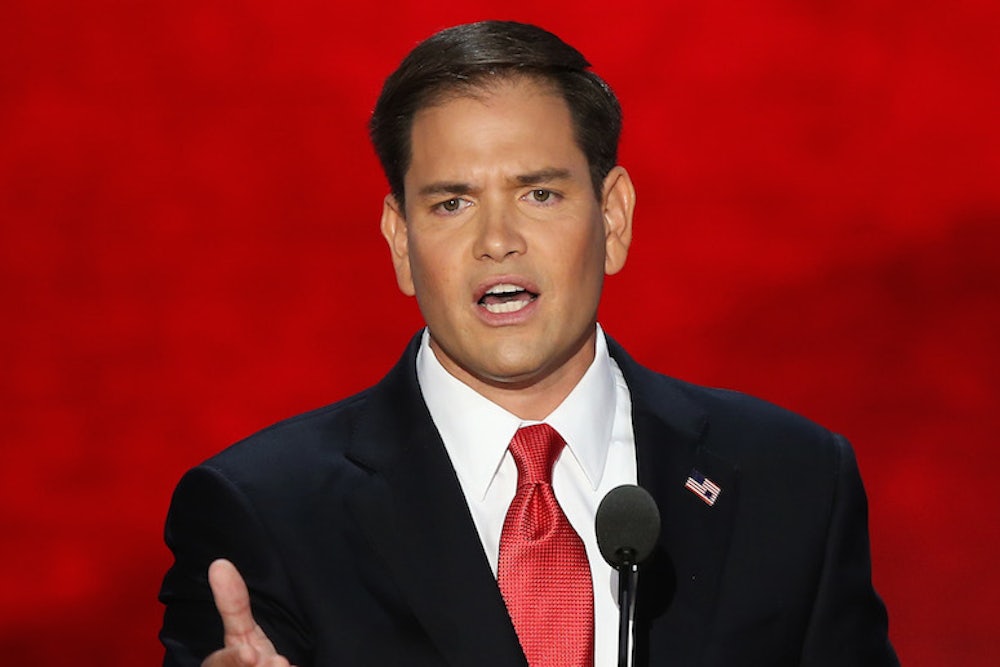On Thursday, the White House announced that Alan Gross and an unnamed Amercan spy would be released from Cuba in exchange for three Cuban spies. President Barack Obama, who campaigned on normalizing relations with Cuba in 2008, has described Gross’s captivity as one of the main impediments to negotiations with Cuba. Speaking from the White House shortly after Gross’s release, Obama described plans to re-establish diplomatic relations, open an embassy in Havana, and ease travel and trade restrictions.
“It is clear that decades of U.S. isolation of Cuba have failed to accomplish our enduring objective of promoting the emergence of a democratic, prosperous, and stable Cuba,” said Obama. “We cannot keep doing the same thing and expect a different result. It does not serve America’s interests, or the Cuban people, to try to push Cuba toward collapse.”
Republican presidential hopeful Senator Marco Rubio, a strong believer in the democratic power of free trade, nonetheless denounced Obama’s decision. “Barack Obama is the worst negotiator that we've had as president since at least Jimmy Carter, and maybe in the history of this country,” he told Fox News Wednesday morning. "It's absurd and it's part of a long record of coddling dictators and tyrants that this administration has established."
Earlier this month, Jeb Bush told a gathering of the U.S.-Cuba Democracy PAC, "I would argue that instead of lifting the embargo we should consider strengthening it again to put pressure on the Cuban regime.” Bush, who essentially announced on Tuesday that he's running for president, has not yet commented on the White House’s policy shift.
Opponents of normalizing relations with Cuba say easing sanctions rewards a dictatorial regime that oppresses its people. However, this notion flies in direct contradiction with the theory that free markets breed democratic institutions. While there are obvious limitations to the democratizing effects of capitalism, the Republican Party has long touted itself as the vanguard of free-trade economics.
For several decades, America's policy has been to funnel money into democracy promotion efforts in Cuba that have no proven efficacy (and endanger the lives of the Americans implementing the projects). In 2009, The Council on Hemispheric Affairs estimated that the U.S. had spent half a billion dollars over the past 20 years enforcing blockade restrictions and broadcasting pro-democracy messages on Cuban radio and TV stations (which were often blocked by the Cuban government).
There is no precedent for setting full democratic reform as a precondition to economic relations. Since 2011, Raul Castro has implemented 250 economic reforms modeled after the system in Communist China. In the 1970s, the U.S. normalized trade relations with China, Romania, Czechoslovakia, and Hungary after they took similar steps to implement preliminary economic reform. Even after economic normalization, the U.S. continued to pressure these countries to improve their human rights practices. As Obama said, “We know from hard-learned experience that it is better to encourage and support reform than to impose policies that will render a country a failed state.”
This piece has been updated
